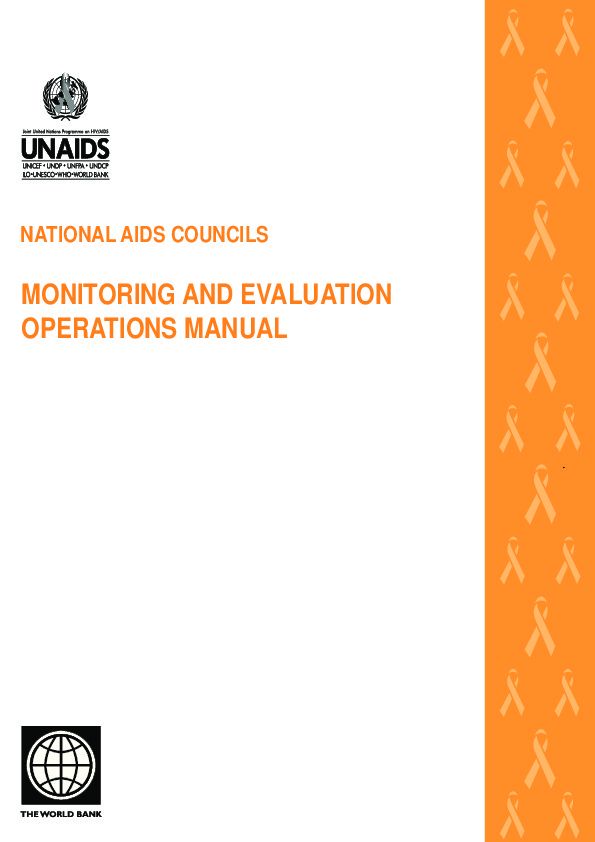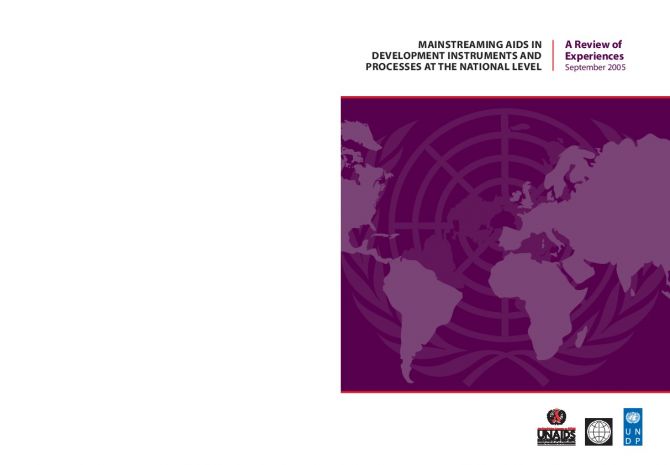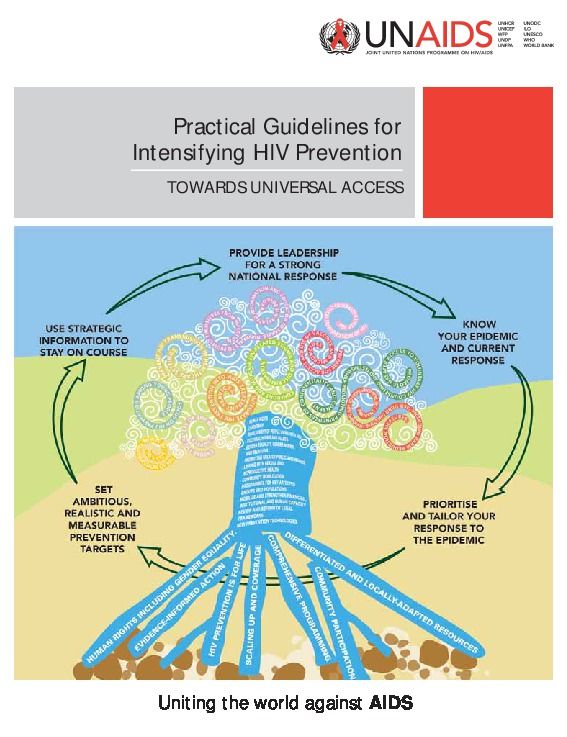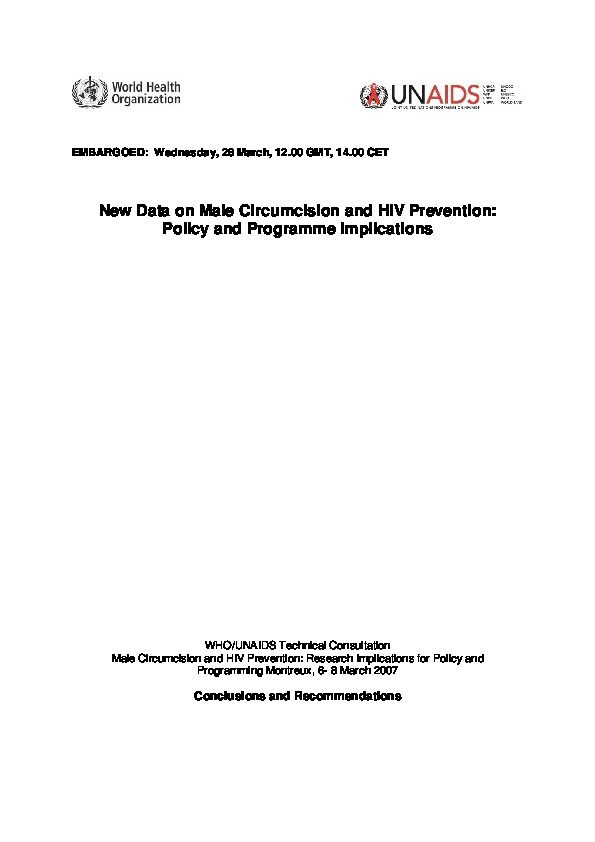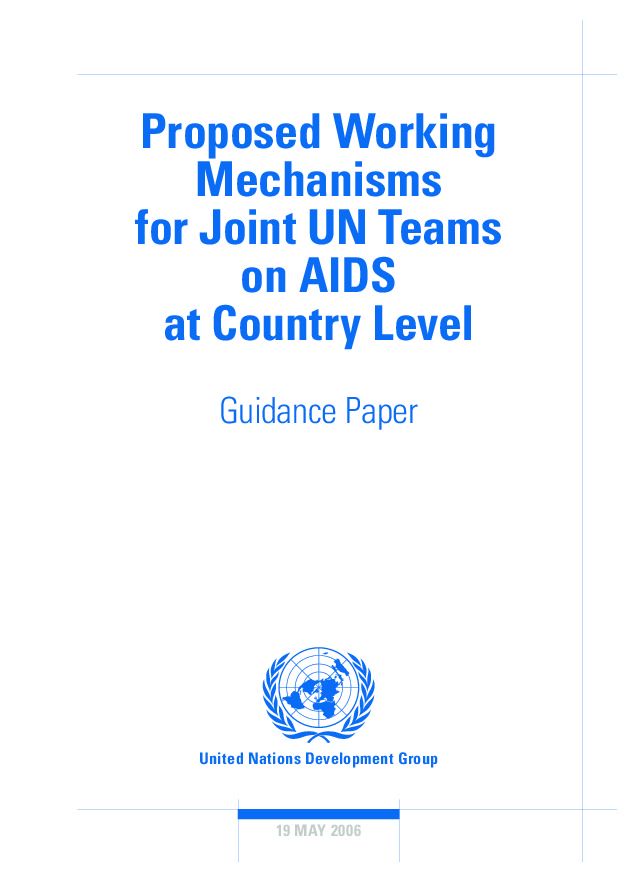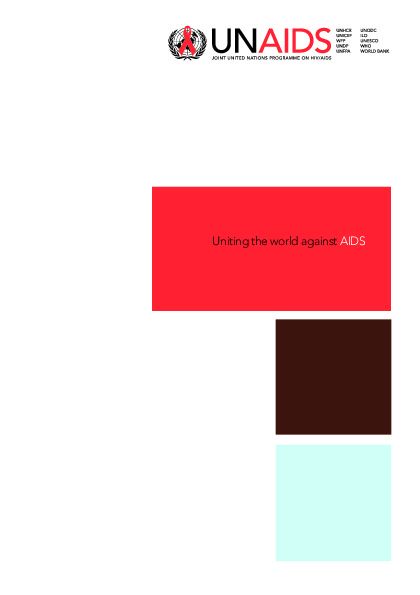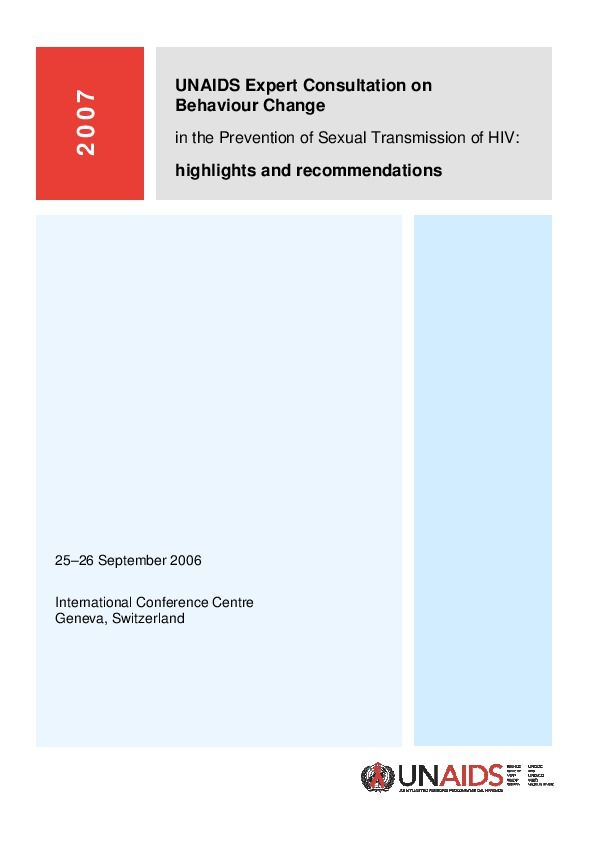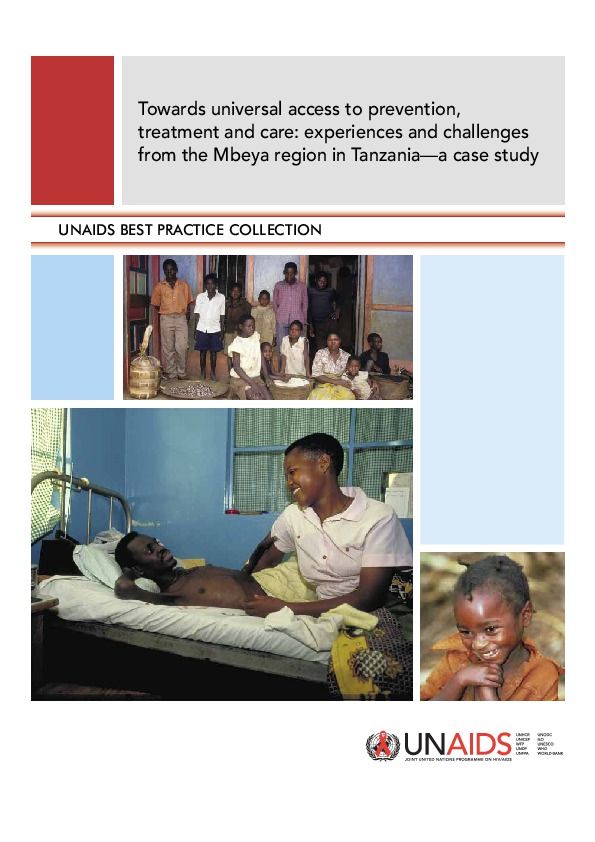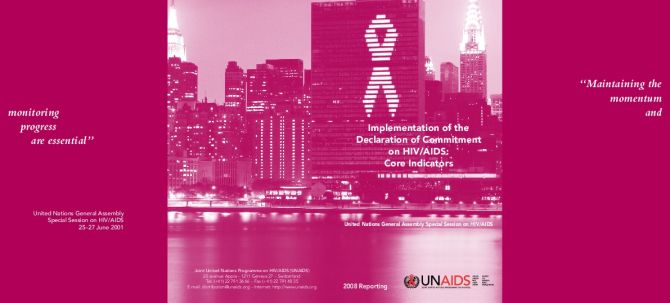Documents
National AIDS Councils : monitoring and evaluation operations manual
01 March 2007
The National AIDS Councils: Monitoring and Evaluation Operations Manual is designed as a practical toolkit and road map for practitioners to use in designing and implementing programme monitoring and evaluation (M&E). The manual introduces key concepts; presents simple, clear procedures, with a checklist of the process, timing and costs of building participatory programme M&E for National AIDS Councils (NACs); and offers key tools that implementing partners need for M&E. The manual emphasizes the development of the overall M&E system, in relation to the National Strategic Plan, and the monitoring of services provided through NACs and their implementing partners.
Documents
Mainstreaming Aids in Development Instruments and Processes at the National Level
01 March 2007
This report is the result of an independent review jointly commissioned by UNAIDS and UNDP of the experiences of mainstreaming AIDS in national development instruments, and technical support provided to national partners in this area. The main national development instruments considered in this report are Poverty Reduction Strategy Papers (PRSPs), and to a lesser extent, national development plans.The review was carried out by the HLSP Institute between November 2004 and June 2005 and is also available on CD Rom.
Documents
Practical Guidelines for Intensifying HIV Prevention
05 March 2007
These Practical Guidelines for Intensifying HIV Prevention: Towards Universal Access are designed to provide policy makers and planners with practical guidance to tailor their national HIV prevention response so that they respond to the epidemiological scenario of the country and populations who remain most vulnerable to and at risk of HIV infection.
Documents
New Data on Male Circumcision and HIV Prevention: Policy and Programme Implications
28 March 2007
In March 2007, WHO and UNAIDS convened an international consultation to review the results of the three randomized controlled trials and other evidence on male circumcision and HIV prevention, to discuss the policy and programme implications, and to make recommendations regarding public health issues. This document summarizes the principal conclusions and recommendations of the meeting.
Documents
Proposed Working Mechanisms for Joint UN Teams on AIDS at Country Level; Guidance Paper
05 April 2007
These proposed working mechanisms for the Joint UN Teams on AIDS have been developed to guide UN Country Teams in their establishment, per the instructions of the UN Secretary-General. It includes information relating to the background, strategies and tools that can be used to harness the potential of the UN Country Team to support the national AIDS response. It provides options for establishing an institutional framework for Joint UN Teams on AIDS and for putting in place a joint UN AIDS Programme of Support. While the focus of this paper is on strengthening UN processes, it is understood that the ultimate goal and purpose of Joint UN Teams on AIDS is to improve support to the national response, and contribute to expanding HIV prevention, care and treatment leading to reduced HIV vulnerability and infections.
Documents
Policy Brief The Greater Involvement of People Living with HIV (GIPA)
10 April 2007
This policy stresses that no single agency or organization can provide for the full spectrum of needs of people living with HIV: partnerships between actors are therefore needed. To enable the active engagement of people living with HIV, UNAIDS urges all actors to ensure that people living with HIV have the space and the practical support for their greater and more meaningful involvement. The GIPA Principle aims to realize the rights and responsibilities of people living with HIV, including their right to self-determination and participation in decision-making processes that affect their lives. This principle was formalized at the 1994 Paris AIDS Summit when 42 countries agreed to “support a greater involvement of people living with HIV at all levels and to stimulate the creation of supportive political, legal and social environments”.
Documents
UNAIDS overview brochure
11 April 2007
This brochure gives an overview of the work carried out by UNAIDS and its ten Cosponsors to ‘Unite the world against AIDS’ and help build a sustainable AIDS response for the future. The brochure highlights how UNAIDS and its Cosponsors are working together, and with all other partners involved in the AIDS response, to build a broad, global united coalition for action with genuinely shared goals.
Documents
UNAIDS Expert Consultation on Behaviour Change Report
30 April 2007
UNAIDS convened an expert consultation on Behaviour Change in the Prevention of Sexual Transmission of HIV in collaboration with the US Office of the Global AIDS Coordinator on 25-26 September 2006. 26 experts from 17 countries joined UNAIDS for the consultation to reconsider the state of knowledge about behaviour change measures for the prevention of sexual transmission of HIV. The objective of the meeting was to create a forum for dialogue about the evidence and the priorities to prevent sexual transmission, to pinpoint a few concrete barriers to behaviour change that can be overcome, and to seek a practical way forward to innovate and test or expand some promising new approaches to behavioural change.
Documents
Towards Universal Access to Prevention, Treatment and Care: Experiences and Challenges from Mbeya Region in Tanzania – A Case Study
09 May 2007
Tanzania has made substantial progress in strengthening the national response to HIV in recent years. This case study describes different aspects of the response made in the Mbeya region over the last 20 years. More than 2 million people live in the region and it was, and continues to be one of the worst-affected parts of the country. However, HIV prevalence which reached an estimated high of 20% in the mid-1990s has been in decline since then. It is very likely that the work of the Mbeya Regional AIDS Control Programme which began in 1988 has made an important contribution to reversing the trend of the epidemic.

